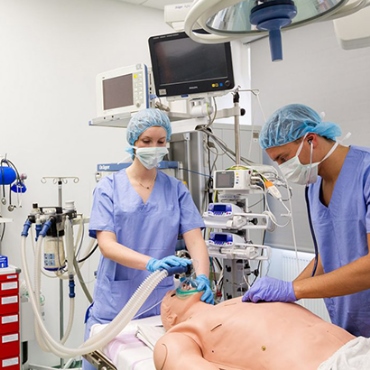Health services in Turkey are controlled by a central government system by the Ministry of Health.In 2003, the government increased the budget
allocated to health care, and Turkey, which is at the junction of the European and Asian continents, is a crossroads of air and land.With the
importance given to health, nearly 400,000 foreign patients come to Turkey every year. As a result of joint efforts with health centers and health
tourism agencies, the number of patients coming to Turkey for treatment is increasing day by day and rises above the health goals of 2023. Turkish
Statistical Institute announced that 19.8 billion USD was spent in 2012 within the scope of health services. According to the figures of 2013,
there are 30.116 health institutions in Turkey and there are 573 patients per doctor.In addition, the number of beds per 1000 persons is 2.64.
In the process of joining the European Union, Turkey has made great investments in the fields of Health, technology and education. Turkey is among
the countries with the highest number of hospitals in the world.
Turkey is the sixth largest country in the world attracting 39 million visitors per year. Turkey carries out significant attacks on Tourism
and develops its tourism capacity and quality every year. It also has an international reputation in the field of hotel management. Turkey
is preferred by millions of tourists every year with welcoming, warm, quality service and world class facilities. In addition to its domestic
and international investments in hospitality and health, tourism is also a new favourite for health tourism.

- There are 170 health institutions in Turkey that have International JCI Joint Commission International compliance certificate.
- There are 60 faculties of Medicine in Turkey that have international validity.
- Since Turkey is a candidate country of the European Union, it provides European standards of health services.
- Large pharmaceutical companies such as Pfizer, GlaxoSmithKline, Johnson and Johnson and Astra Zeneca have laboratories and manufacturing facilities in Turkey.
- The Turkish Red Crescent, which has JCI compliance certificate, is in the forefront with the reliability of the blood bank.
Turkey is an advantageous country for medical tourism to be qualified and more economically treated or to improve its health. These advantages can be listed as follows:
- 2008 -- 74.093
- 2009 -- 91.961
- 2010 -- 109.678
- 2011 -- 176.000
- 2012 -- 261.999
- 2013 -- 300.000
- 2014 -- 335.460
- 2015 -- 398.350 people have come to Turkey to be treated.
GERMANY AND LIBYA IN THE FIRST PLACE: Medical tourists are mostly from Libya, Germany and Iraq, and the patients who receive services within the scope of the health of the tourists are mostly from Russia, Germany and England. In general, it is observed that the countries where international patients come are Germany, Libya and Russia.
JCI ACCREDITATION IS THE PREFERRED REASON One of the interesting findings in this study is that 1 out of 4 international patients prefer hospitals accredited by JCI and 1 out of 3 international patients prefer one of three or more group hospitals.
- Close flight distance
- Appropriate treatment costs
- Qualified staff
- Quality service
- Modern medical technology
- No waiting time
- Socio-cultural similarity
- The variety of tourist activities accompanying
- 2017 --- 700.000 Person,
- 2018 --- 800.000 Person,
- 2019 --- 1.000.000 Person,
- 2020 --- 1.300.000 Person,
- 2021 --- 1.600.000 Person,
- 2022 --- 1.800.000 Person,
- 2023 --- 2.000.000 Person waiting toTurkeey
The number of plastic surgeons in the world (%)
| Sıra | Ülke | Doktor Sayısı | Doktor Yüzdesi |
|---|---|---|---|
| 1 | USA | 6.133 | %15,2 |
| 2 | Brazil | 5.473 | %13,6 |
| 3 | China | 2.800 | %7 |
| 4 | Japan | 2.302 | %7,5 |
| 5 | India | 2.150 | %7,5 |
| 6 | South Korea | 2.054 | %7,5 |
| 7 | Russia | 2.000 | %5 |
| 8 | Mexico | 1.550 | %3,8 |
| 9 | Turkey | 1.200 | %3 |
| 10 | Germany | 1.101 | %2,7 |
HEALTH TOURISM IS DIVIDED INTO THREE TYPES: Health tourism in general is called 3 different areas of tourism comes to mind;
- Medical Tourism: Health tourism in the form of international patients receiving services from health institutions for the purpose of treatment and rehabilitation.
- Thermal Tourism and Medical SPA: Health tourism in which some complementary medical applications such as medical massage, peloid are performed along with spa water or hotel services.
- Elderly and disabled tourism: Health tourism is a combination of care, rehabilitation and medical treatment of elderly and disabled people.










